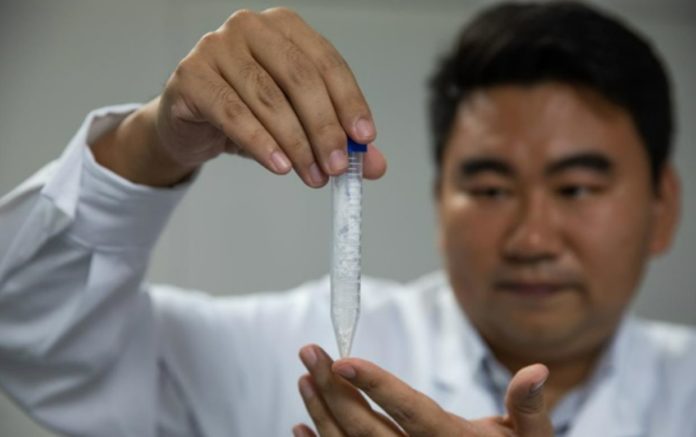This new method allows the production of starch from carbon dioxide with an efficiency 8.5 times higher than the biosynthesis of starch in corn.
According to a study published in the journal Science on Friday, Chinese scientists used carbon dioxide, hydrogen, and electricity to create starch, a type of complex carbohydrate found in plants.
Experts believe that if this technique can be scaled up to the level of industrialization, it could revolutionize how this key nutrient and industrial ingredient is produced because it does not require farming and processing large quantities of starchy crops like sweet potato and maize, saving more water, fertiliser, and arable land.
It could also be used to convert carbon dioxide, a common industrial waste and greenhouse gas, into a consumable product. This will aid in reducing carbon emissions and combating climate change, especially if the electricity used is generated from renewable sources such as solar and wind.
It may provide a sustainable food source for astronauts as they travel long distances in space and attempt to colonize other planets where growing food is impractical. Future space travellers may simply convert the carbon dioxide they expel into foo
According to Ma Yanhe, director of the Chinese Academy of Sciences’ Tianjin Institute of Industrial Biotechnology, starch and other complex carbs account for 60 to 80 percent of the human diet.
“Our breakthrough demonstrates that synthesizing complex compound like starch is achievable in a lab, and there are many industries that can benefit from this technology,” he said.
According to Bric International Group, a global agricultural data firm, starches are widely used in sugar production, food and beverage processing, printing, drug-making, textile, animal forage, and dozens of other industries.
Plants produce carbohydrates such as starch through photosynthesis, which is an extremely complex and inefficient process, according to Ma, who added that it would take a plant about 60 metabolic reactions to convert carbon dioxide, water, and sunlight into starch.
Cai Tao, one of the study’s first authors, stated that his team has been working on a single project for six years: how to make starch like plants, but much faster.
Creating carbohydrate in a more efficient manner is so important for Earth’s sustainability and future space exploration that NASA named carbon dioxide conversion to glucose, a simple sugar, as one of its centennial challenges in 2018. Starch is composed of a much longer chain of glucose molecules.
Cai explained that their method involves first converting carbon dioxide and hydrogen gas into methanol, a molecule with a single carbon atom.
Scientists then use enzymatic processes to assemble these single-carbon molecules into larger and more complex molecules, much like a puzzle.
